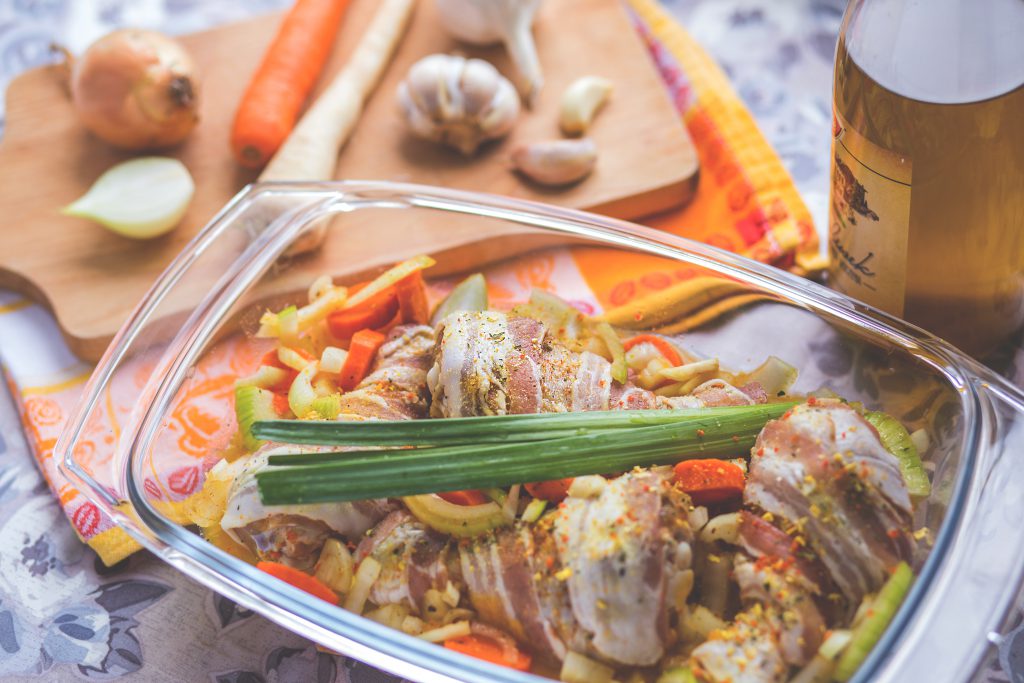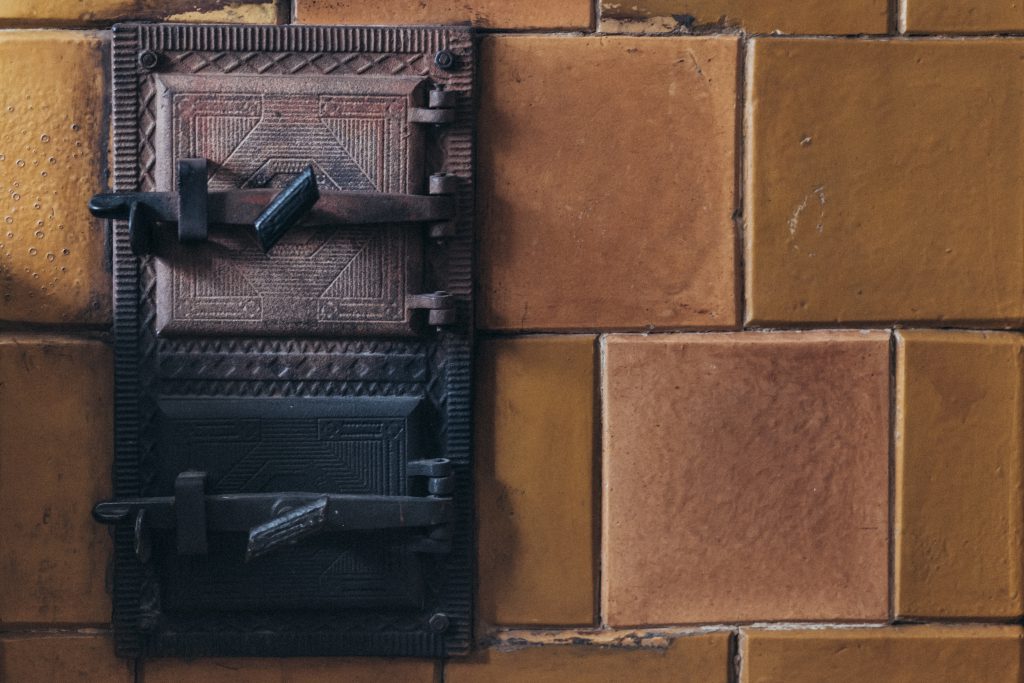How To Make The Perfect Scotch Egg: A Step-by-Step Guide
How To Make The Perfect Scotch Egg: A Step-by-Step Guide
Assembling the Eggs
Gather Ingredients
Assembling the Eggs:
1. Place the cooked and peeled egg in the middle of the patty.
2. Wrap the ground meat across the egg, urgent gently to stick.
3. Roll the Scotch egg in flour, then eggs, and finally breadcrumbs.
4. Repeat steps 2 and three to ensure a thick coating.
Gather Ingredients:
For the Eggs:
• 6 massive eggs
• Cold water
For the Meat Mixture:
• 1 pound floor pork
• half pound floor veal
• 1/4 cup bread crumbs
• 1 tablespoon minced onion
• 1 tablespoon minced parsley
• 1 teaspoon salt

• 1/2 teaspoon black pepper
For the Coating:
• 1 cup flour
• 2 eggs, beaten
• 1 cup breadcrumbs
For Frying:
• Vegetable oil
Hard Boil Eggs
Assembling the Eggs
- Peel the hard-boiled eggs and set them apart.
- In a large bowl, mix the ground meat, bread crumbs, Parmesan cheese, salt, and pepper.
- Mix nicely until all elements are evenly distributed.
- Divide the meat combination into 10 equal portions.
- Take one portion of the meat mixture and flatten it right into a disc.
- Place a hard-boiled egg within the heart of the disc.
- Wrap the meat mixture around the egg, pressing firmly to seal.
- Repeat with the remaining portions of meat mixture and hard-boiled eggs.
- Place one sausage meatball in the heart of a sheet of cling movie.
- Unwrap the hard-boiled egg and place it on high of the sausage meatball.
- Wrap the cling movie around the egg and sausage meatball tightly, pressing to ensure it is completely sealed.
- Repeat with the remaining eggs and sausage meatballs.
- Place the eggs in a single layer in a large saucepan.
- Cover the eggs with cold water.
- Bring the water to a boil over excessive warmth.
- Once the water is boiling, cover the pan and remove it from the heat.
- Let the eggs stand within the hot water for 10-12 minutes.
- Drain the new water and instantly run the eggs under cold water until they are cool to the touch.
- Peel the eggs underneath running water for easy removing of the shells.
- Combine the ground pork, salt, pepper, sage, and thyme in a big bowl.
- Mix well until the seasonings are evenly distributed.
- Form the sausage meat into patties or hyperlinks.
- The commonest seasonings for sausage are salt, pepper, sage, and thyme.
- Other in style seasonings include garlic, onion, paprika, and cayenne pepper.
- The amount of seasoning you utilize will rely on your personal taste.
- Start with a small quantity and add more to style.
- Serve the scotch eggs heat or at room temperature.
- Garnish with parsley, chives, or paprika, if desired.
- Serve with your favorite dipping sauce, corresponding to mustard, ketchup, or mayonnaise.
Peel Eggs
Assembling the Eggs:
Peel Eggs:
Making the Sausage Meat
Season Sausage Meat
Sausage Meat
Making the Sausage Meat
Seasoning the Sausage Meat
Mix in Breadcrumbs and Herbs
1. In a big bowl, mix the sausage meat, breadcrumbs, herbs, salt, and pepper.
2. Mix properly until all the components are evenly distributed.

3. Use your arms to kind the combination into small, golf ball-sized balls.
4. Place the balls on a baking sheet lined with parchment paper.
5. Refrigerate for no less than half-hour, or up to overnight.
Wrapping the Eggs
Form Sausage Meat Around Eggs
Place the sausage meat onto the floured board and roll it out with a rolling pin into an oval that’s large sufficient to wrap around the back of the egg.
Place the egg in the center of the sausage meat and wrap the meat around the egg, ensuring that the egg is completely covered.
Use your fingers to smooth out the sausage meat around the egg and press it firmly to guarantee that it’s sealed.
Roll the wrapped egg in the flour to coat it and then place it on a baking sheet lined with parchment paper.
Coat in Flour
Wrapping the Eggs:
– Once the sausages are cool, wrap every egg in a layer of sausage meat, making certain it is evenly distributed and there are not any air pockets.
– Use your hands to gently form the sausage-wrapped eggs into an oval form.
Coat in Flour:
– In a shallow dish, spread out some flour.
– Roll each sausage-wrapped egg in the flour, making certain it is evenly coated.
Coat in Egg Wash
Next, wrap every egg in a single layer of cling film, ensuring it is tightly sealed.
Then, dip every wrapped egg into the egg wash, turning to coat evenly.
Remove the eggs from the egg wash, permitting any excess to drip off, and roll them in the breadcrumbs, urgent gently to adhere.
Place the coated eggs on a wire rack or tray lined with parchment paper and refrigerate for a minimum of half-hour or up to overnight to firm up.
This step will help the breadcrumbs adhere better through the frying process, resulting in a crispy and evenly coated Scotch egg.
Coat in Breadcrumbs
Wrapping the Eggs:
1. Sprinkle flour on a clean work surface.
2. Place one egg within the center of the flour and gently roll it round to coat it evenly.
3. Remove the egg from the flour and shake off any extra.
4. Wrap the egg with a single layer of cling movie and twist the ends to safe it.
5. Repeat with the remaining eggs.
Coat in Breadcrumbs:
1. In a shallow dish, whisk together 1 cup of breadcrumbs, 1/2 cup of grated Parmesan cheese, 1/4 cup of chopped parsley, 1 teaspoon of salt, and half of teaspoon of black pepper.
2. Unwrap the eggs and dip them into the breadcrumb mixture, urgent gently to stick the crumbs.
3. Transfer the eggs to a plate or baking sheet and refrigerate for a minimal of 1 hour or up to overnight.
Cooking the Eggs
Deep Fry Eggs
Cooking the Eggs
1. In a large saucepan over medium heat, fill with water and produce to a rapid boil.
2. Gently lower the eggs into the boiling water utilizing a slotted spoon.
3. When the water returns to a boil, set a timer to your required consistency:
– 5 minutes for soft-boiled eggs
– 7 minutes for medium-boiled eggs
– 9 minutes for hard-boiled eggs
4. Once the eggs have cooked, switch them instantly to an ice bath to stop the cooking course of.
5. Let the eggs cool within the ice bath for chicken fajitas Recipe at least 10 minutes earlier than peeling.
6. Peel the eggs and put aside until able to assemble the scotch eggs.
Deep Fry Eggs
1. In a large skillet or deep fryer, heat the oil to 350°F (175°C).
2. Carefully drop the scotch eggs into the recent oil.
3. Fry the scotch eggs for 3-4 minutes, or until golden brown.

4. Remove the scotch eggs from the oil and drain on paper towels.
5. Let the scotch eggs cool slightly earlier than serving.
Drain Eggs
Carefully lower the eggs into the boiling water using a slotted spoon or tongs.
Cook for six minutes 30 seconds for a soft-boiled egg, or eight minutes for a medium-boiled egg.
Remove the eggs from the water and instantly place them in a bowl of cold water to stop the cooking course of.
Once the eggs are cool, drain them properly on kitchen paper.
Rest Eggs
Place the eggs in a single layer in a shallow baking dish. Cover the eggs with chilly water. Add 1 tablespoon of salt to the water.
Bring the water to a boil over high warmth. Once the water is boiling, take away the pan from the heat and canopy. Let the eggs rest within the sizzling water for 12 minutes.
Remove the eggs from the hot water and instantly switch them to an ice bath. Let the eggs cool in the ice bathtub for at least quarter-hour earlier than peeling and using.
Serving the Eggs
Slice Eggs
Peel and slice the eggs when they’re cool enough to deal with. If the eggs are overcooked, they are going to be tough to peel without breaking. To slice the eggs evenly, use a sharp knife and make clean, exact cuts.
Garnish Eggs
Serving the Eggs:

Recent Posts
- How Gluten-Free Fried Chicken Differs From Traditional Fried Chicken
- Blueberries And Their Use In Home Remedies
- How Blueberries Are Used In Edible Decorations
- How Blueberries Became A Superfood
- The Cultural Significance Of Blueberries In Indigenous Communities
- The Evolution Of Blueberry Farms Over Decades
- Can Blueberries Improve Your Skin Health
- The Cultural Importance Of Blueberries In Nordic Countries
- The Economic Importance Of Blueberries
- The History Of Blueberries In Native American Diets
- The Role Of Blueberries In Diabetes Management
- The History Of Blueberries And Their Cultivation
- Blueberries In Contemporary Art Installations
- The History Of Blueberry Stains And Their Remedies
- How Blueberries Are Used In Aromatherapy
- The Science Of Blueberry Preservation Techniques